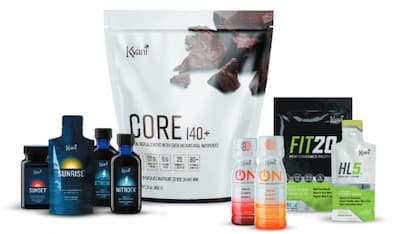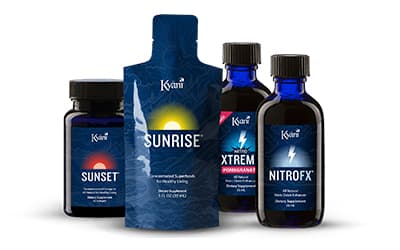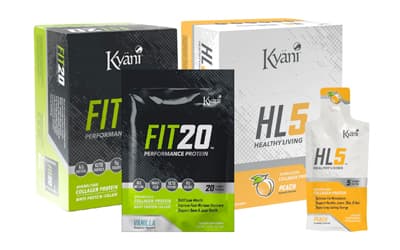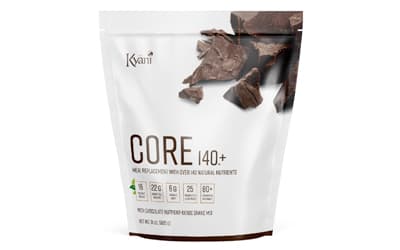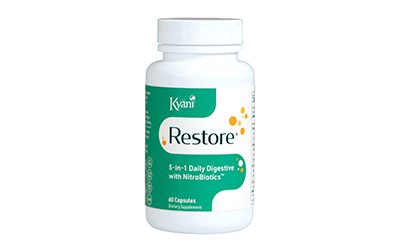There are many important things you need to know about vitamins. These micronutrients are organic molecules that cannot be synthesized in the human body. They must be obtained through the diet. Your body cannot produce them in sufficient amounts to meet its needs. However, it can produce the necessary compounds in smaller quantities. A healthy diet will provide your body with the vitamins it needs. So, how do you get the nutrients you need from your diet?
Vitamins are essential to our health. They help our bodies grow and develop normally. A varied diet will provide the essential nutrients you need to stay healthy and strong. It's important to get a variety of foods that are rich in these substances. You should try to eat a variety of different types of food, as this will ensure your body gets the vitamins it needs. And, as with any other nutritional supplement, it's best to avoid supplements.
Vitamins are essential for optimal health. They are needed for growth, development, and metabolism. They are found in a wide variety of foods and play important roles in the body. Listed below are some of the most important vitamins for our health. The Vitamin B group includes vitamins A, D, E, and K. Other B groups include thiamine, biotin, and niacin. Some of these vitamins are naturally occurring and others are synthetic.
The vitamins A and D family is made up of various compounds that humans require to function normally. They are important for growth and development. During the nineteenth century, the letters "B" and "A" were used for fats and carbohydrates. Since they are water-soluble, humans can synthesize certain vitamins. These substances are essential for normal functioning and are stored in the liver. By the end of the 20th century, all the vitamins had been discovered and recognized.
In addition to the vitamins we consume, we need some minerals as well. These minerals can be measured in milligrams or micrograms. Some of them are essential for bone health and blood clotting, but others are only found in small quantities. For example, vitamin A is essential for bone development. Similarly, vitamin D is important for clotting and has many other uses. In a healthy diet, it is necessary to eat eggs, nuts, and fatty fish.
There are two main categories of vitamins. Some are water-soluble and others are fat-soluble. The most important type is water-soluble. The latter is the most widely available and is the most common type. It is essential for coagulation and is important in the process of wound healing. It can cause a number of other conditions. The B-complex is the most important category of vitamins and minerals. It is essential for healthy bones, immune system, and healthy vision.
These are essential nutrients found in food. They are vital for the proper functioning of the body. You can obtain vitamins from foods like oranges and peppers, but they are also found in large amounts in some fruits and vegetables. Fortunately, they aren't the only vitamins that are beneficial to the body. They are also essential for our immune system. Whether you're looking for a supplement for vitamin A or vitamin C, there are plenty of options for you to choose from.
There are 13 types of vitamins that are essential for your body. Your body requires these vitamins to function properly. In addition to the 13 essential vitamins, you should also consider vitamin supplements. These substances are essential for your body's proper functioning. Your body needs them to grow and repair cells, so it's vital to get a daily supply of these nutrients in your diet. You can choose between natural foods and vitamins found in your vitamin supplements.
Your body needs a variety of vitamins to function properly. While some vitamins are important, others are not. They are necessary in small amounts and help the body function correctly. Your body produces collagen, which supports blood vessel walls, builds bones and provides energy. Other vitamins can help in the breakdown of amino acids and build the skin. These are all essential for your health. Getting your daily dose of these vitamins in your diet is essential for optimal health.
We've all heard the advice, "You should take vitamins, but who should take them?" However, many of us don't know exactly what those vitamins are. There are a few general rules of thumb. In general, vitamin D is necessary for bone health. Women need B12, as it's the most abundant vitamin in the human body. People who are taking statins, who are at risk for falling, and those who may become pregnant or breastfeed should also take vitamins D and folic acid.
Vitamins are essential for your health. They help keep your bones strong and prevent deformations in your child. Those who are 65 and older should take 10 micrograms of vitamin D every day. And if you don't get enough vitamin D from your diet, you should take a supplement that contains 10 micrograms of vitamin D. Those who don't eat at least five servings of fruit and vegetables should take a multivitamin, which contains several different vitamins.
If you eat a plant-based diet, you may be getting too little vitamin B12. The National Health Service of the UK states that overt toxicity of vitamins is rare. Nonetheless, a high dose of Vitamin C has been linked to headaches and nausea. The UK National Health Service also warns against overdosing on water-soluble vitamins. If you're vegan, make sure to eat foods high in vitamin A and beta-carotene. Both of these nutrients are essential for the functioning of our bodies.
Some people are at risk for nutritional deficiencies. These groups include lactating women, elderly people, vegetarians, lactating women, and pregnant women. Some people with poor metabolic control or those who have kidney stones are also at risk for deficiencies in vitamin D. If you're wondering, "Who should take Vitamins?" is an excellent place to start. You can use this website to learn about different vitamin types. And while you're at it, you'll want to remember that the best advice is always to consult your doctor and a qualified health provider.
If you're a vegan or vegetarian, you should avoid eating too much meat and dairy products. While they're beneficial, they shouldn't be substituted for a healthy diet. For example, too much vitamin A can cause birth defects in pregnant women. If you're a vegetarian, don't take vitamin D if you don't drink almond milk. But if you're a vegan, you should consider taking a multivitamin.
If you're pregnant, you should consult your doctor about vitamin intake. You should ask your midwife about vitamin access and supplementation. The right vitamins can help you stay healthy and longer. A healthy pregnancy begins with the right vitamins. If you're not pregnant, you can take supplements for vitamin D, magnesium, zinc, and selenium. You can also take a daily multivitamin for a few days to see if they're in your system.
Taking a multivitamin is a healthy habit. It can fill in the nutritional gap in our modern diet. A healthy diet includes plenty of fruits and vegetables. Those who don't eat a balanced diet may benefit from vitamin supplements. It's not a substitute for a balanced diet, but it does offer benefits to our bodies. If you're a vegetarian, it's good to take vitamin supplements along with a balanced diet.
Studies have found that vitamin supplements should not be taken without a doctor's recommendation. They should be taken only when a medical condition has been diagnosed. You should also talk to your doctor if you're taking supplements. They'll be able to determine what dosage is right for you. A healthy diet is essential for your body. The right vitamins and minerals are essential for a healthy lifestyle. For these reasons, you should take vitamins and minerals to stay healthy.
The most important vitamins are essential for your health. The most important ones should be taken in sufficient amounts. The best vitamin supplements will be pure, without added ingredients. You can also find a multivitamin that contains all of the essential nutrients. It's not recommended to take a vitamin with a lot of additives. You'll end up taking too much of a supplement and risk developing side effects. But if you want your vitamins to be effective, make sure you eat plenty of fresh vegetables and fruits.

